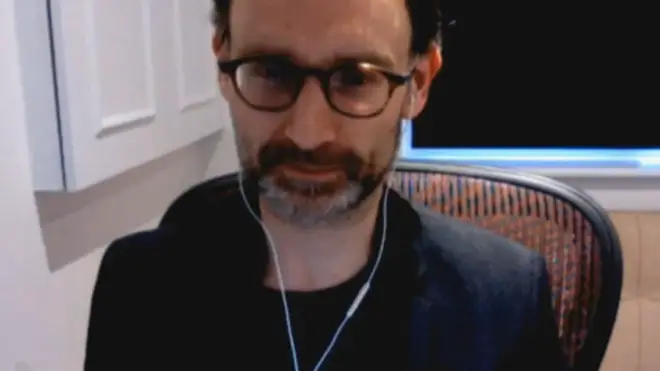
Clive Bull 1am - 4am
5 May 2020, 20:31

The top scientist behind the Government’s decision to lock down Britain has quit after breaking social distancing rules.
Professor Neil Ferguson, the Imperial College epidemiologist whose drastic modelling of Covid-19 has helped steer Boris Johnson’s approach to the pandemic, resigned on Tuesday night after a woman, reported to be his "lover" visited him at his home.
He told the Telegraph: “I accept I made an error of judgement and took the wrong course of action. I have therefore stepped back from my involvement in SAGE [the government's Scientific Advisory Group for Emergencies].
“I acted in the belief that I was immune, having tested positive for coronavirus and completely isolated myself for almost two weeks after developing symptoms.
“I deeply regret any undermining of the clear messages around the continued need for social distancing to control this devastating epidemic. The Government guidance is unequivocal, and is there to protect all of us.”
A Government spokesperson confirmed Prof Ferguson’s resignation.
He entered self-isolation at the end of March after testing positive for the virus.
The leading academic sat on the Government’s scientific advisory group for emergencies (Sage) and the New and Emerging Respiratory Virus Threats Advisory Group (NERVTAG).
Listen & subscribe: Global Player | Apple Podcasts | Google Podcasts | Spotify
Prof Ferguson, a mathematician and epidemiologist, led the Imperial team which modelled the spread and impact of Covid-19 in a Government-commissioned report.
The paper said merely slowing the spread of the virus, which had at that point been the aim, would have led to the NHS being overwhelmed by cases.
Around 250,000 people would have died in the UK in that scenario but the research said stricter measures would drastically reduce this.
In the report's wake, the Prime Minister announced the lockdown on March 23 ordering the public to stay at home as he shut most shops and gave police unprecedented enforcement powers.
Prof Ferguson said on March 18 that he had the fever and cough symptoms of Covid-19 and that there was a small risk he had infected others.
"The more serious point is that it highlights the need for the response which has been enacted," he said at the time.
All outings and travel are banned, except shopping, medical or work essentials, and police have issued 9,000 fines to Brits who have flouted the rules.
It comes after Scotland’s chief medical officer, Dr Catherine Calderwood, was forced to step down last month after making two trips to her second home during lockdown.
Cabinet Minister Robert Jenrick also came under fire in April for travelling 150 miles from London to his £1.1million second home in Herefordshire, flouting rules banning non-essential travel.
He also travelled 40 miles to his elderly parents’ house in Shropshire, but insisted he was delivering medical supplies.